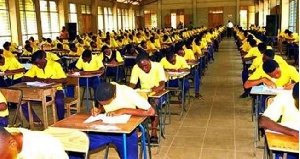Many Left-leaning Ghanaian politicians, particularly the key operatives of the main opposition National Democratic Congress (NDC), said it could not be done, and also that it was not economically sustainable. But, of course, it has been done and has proven to be very sustainable well beyond the parochial and cynical imagination of its most ardent critics and skeptics.
But even more ironically risible is the fact that the Kufuor-minted National Health Insurance Scheme (NHIS) has become one of the major centerpieces of the bragging rights of the National Democratic Congress. It started with the erstwhile Mills-Mahama government; and subsequently, the Mahama/Amissah-Arthur regime.
Indeed, in the homestretch lead-up to last December’s general election, a former National Democratic Congress’ CEO, who had earlier on been summarily fired from his post for gross administrative mismanagement of the NHIS, was strenuously and publicly attempting to dissociate New Patriotic Party ownership of credit for the establishment of the National Health Insurance Scheme. He would proudly commend the Mahama government for having tripled the number of Ghanaian citizens enrolled into the scheme.
This is rather risible because for most of the period that Chairman Jerry John Rawlings occupied the seat of governance, first as a veritable and extortionate dictator and then later as a “democratically” elected president, the Provisional/National Democratic Congress (P/NDC) championed the Darwinian health policy of what became notoriously known as Cash-and-Carry.
Under this purportedly “social democratic” healthcare policy, as the likes of Messrs. Rawlings, Atta-Mills and Mahama claimed, only those who had the financial means of paying for it received the requisite healthcare services. The rest of the proverbial “Wretched of the Earth” (my profound apologies to Dr. Frantz Fanon), had to go to H-E-L-L!
Now we have some of the same policy skeptics asking how President Akufo-Addo intends to fund his campaign policy proposal of free Senior High School (SHS) education for all. I guess it can hereby be safely assumed that elementary and Junior Secondary School (JSS) or middle-school education is presently being freely funded by the Government of Ghana.
If the Government can figure out how to successfully fund basic education by taxpayer revenue until now, then, no doubt, it would not be too much of a stretch to ask the same Government to also figure out how the equally critical SHS level of public education which, by the way, in most economically and technologically advanced countries is free-of-charge, can be funded without collapsing our already ramshackle national economy. Of course, I make my latter argument squarely based on our knowledge of how we got here, and also who negatively contributed the most to the country’s presently dismal state of economic affairs.
We might also add, significantly, that this question comes at a time when the recently democratically ousted Mahama government was widely known to be doggedly in pursuit of the rather culturally bizarre policy of distributing tampons (or sanitary pads) to schoolgirls, as well as uniforms and foot-ware to selected pupils across the nation.
The well-respected former Nkrumah lieutenant, Mr. K. B. Asante, is widely reported to have said that the promise of the provision of free Senior High School education by the Akufo-Addo Administration would unhealthily encourage parental irresponsibility, because people who feel the “very adult necessity” of bringing children into the world ought to be ready to take up the parental responsibilities that come with the same.
In reality, it is the Mahama regime’s education policy of the free distribution of sanitary pads, sandals and uniforms that seriously and flagrantly undermined parental responsibility. I sincerely believe that providing free education to all school-age pupils, while their parents and guardians took care of the most personal needs of these children is the most progressive policy for our country at this time.
Needless to say, our present-day Ghana is near-totally morally and culturally bankrupt; and unless some radical remedial policy initiatives are promptly put in place, a few decades from now, we would not be able to build and/or preserve the sort of ideal civilized and progressive society we all deserve and crave. The imperative need for our immediate and rapid human-resource development cannot neither be gainsaid nor overemphasized.
This was the overriding contention of Dr. J. B. Danquah in his long-running debate with President Kwame Nkrumah; and it is unarguably the most significant aspect of our national advancement policy initiatives.
This is what the boorish “infrastructure”-fixated Mahama-led government of the National Democratic Congress never seemed to have learned. Hopefully, the self-proclaimed hear-no-evil, see-no-evil Mahama operatives are presently learning this the hard way, that is, in the wake of their apocalyptic defeat in last December’s general election.
Opinions of Wednesday, 18 January 2017
Columnist: Okoampa-Ahoofe, Kwame















